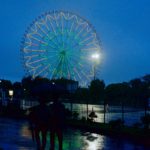Even if the daily struggles of our lives sometimes seem equally repetitive and absurd, we still give them significance and value by embracing them as our own.
Albert Camus ‘The Myth of Sisyphus’
I first noticed them on an early spring morning, in the twilight before dawn, enough light to define objects but still lacking the strength to draw them out.
They stood at the edge of the park mysteriously devoid of activity and totally silent. My early morning excursions crosses paths with a multitude of characters, young lovers , a truck driver parking his Lexus and taking out his truck, the newspaperman riding his scooter, one foot permanently stretched out, stopping, rushing to put the newspaper in mail boxes and rushing back.
There has been a rare drunk, passed out on a bench and one sprawled across the steps of a building with his wallet, cellphone scattered around. That one time , I was worried enough to walk to the nearby police post, only to find a policemen already on the way, someone having reported before me.
’There’s a man on the stairs’ I told the policeman.
‘Don’t worry’, was his reply as he went about trying to rouse the man gently, gathering his belongings and calling him by his name. The drunk was obviously a known character.
But all these people seemed to have a purpose, even the drunk, the stupor was the purpose. When I noticed the people in the park what stood out was a sense of stillness, and a lack of movement. They stood there silently, watching me from the corner of their eyes but avoiding eye contact as I passed them.
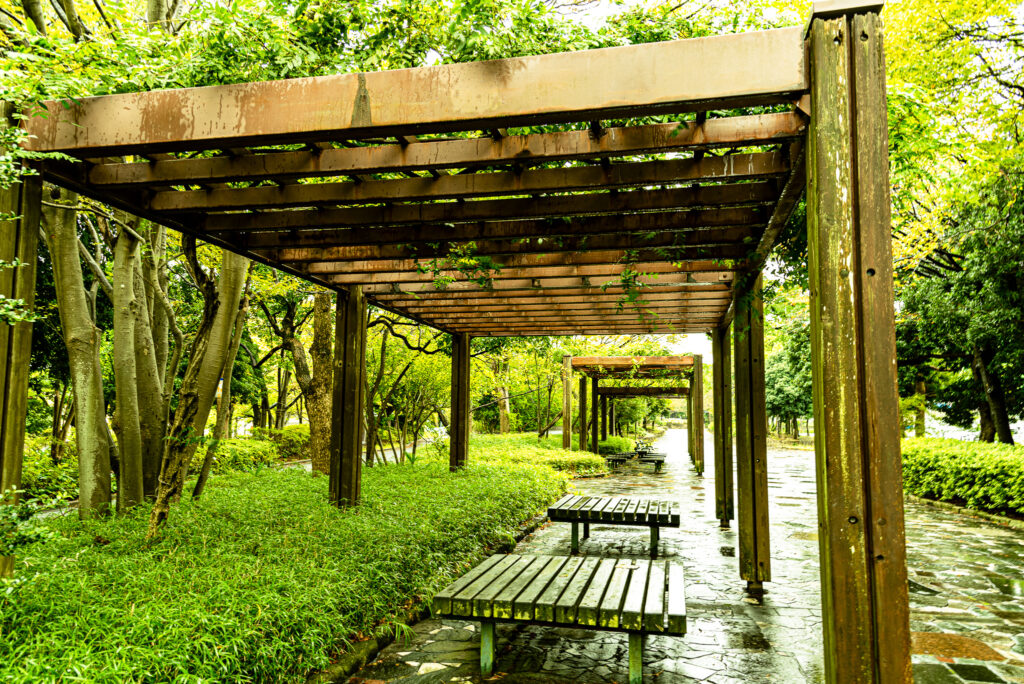
What else stood out, other than the clandestine behaviour were their clothes. There was a man, wearing a crumpled cloth hat, a coat which hung around loosely on his thin frame and a pair of baggy jeans.
The woman also had loose fitting clothes, a cardigan and a scarf draped around the shoulders and slightly better fitting jeans.
They stood in the corner of the park, not huddled together but slightly apart. The early morning hour and the total lack of any other human being nearby was the only thing that seemed to bring them together.
Both had an air of shabbiness about them, which might have come from sleeping in those clothes, but not enough to make them look homeless. The clothes despite their rumpled state looked clean and I could see that both wore sneakers apparently in a decent condition.
‘Homeless’ was the first thought that had come to my mind when I saw them in the faint early morning light for the first time, but later sightings put that notion away.
There is another park on my path and most days, including winter mornings, I would see a homeless man sitting still. He wore a lot of clothes, a hat, thick jacket and a rucksack next to him. He had a long unkempt beard and the well worn, filthy state of clothes stood him out as someone homeless, spending his nights in the park.
I occasionally saw him at other places and once he came to the supermarket and seeing him the clerk hurriedly ran up to him to get him out of the way of the other shoppers.
Homelessness in Japan is a combination of circumstances and rebellion. There is an obvious hardship mostly financial, the loss of a job or emotional, a break-up or a failed marriage driving someone into despair. But other times it is a revolt against the standing order, the rules that define how we behave, talk or act. Sometimes the homeless person, most often a man, is not so much condemned into the circumstances as he is revolting against them.
But these two characters standing at the edge of the park defied definition, they stood out because of their silence and a lack of activity. The man had a bicycle and a few plastic bags hung on the handle. The bags looked old and used but appeared to have small portions of something not visible inside them.
The mystery revealed itself a few weeks later when made my way outside the apartment. There is a lobby near the exit with large windows. I could make out a shape of a cat near the bottom of the window, on the outside . As I stepped outside, the automatic doors sliding open, the man was startled and hastily stepped away from the door. I could see a packet in his hand and he was trying to put something on the window sill.
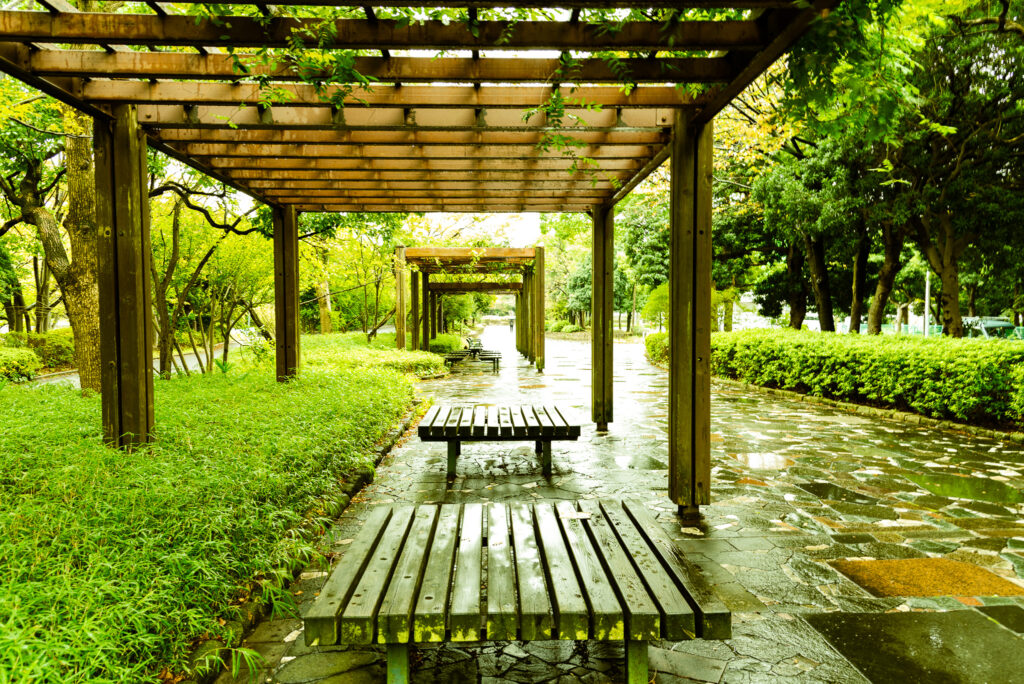
Stray cats are not a rarity in most of urban Tokyo and the place where I live has an abundance of parks and greenery. It is not uncommon to find stray cats roaming around in the parks and the walkways.
There is a bird park a few kilometres away which has signs for people not to bring their dogs and cats into the park, but for some reason the cats are allowed to roam in an area not too far off from the bird park.
These early morning intruders were feeding the cats and for some reason doing it in a manner not to draw attention. They did the deed in the dark and I struggled to comprehend what shame could force people to wake up early and feed cats before anyone noticed them doing it.
There were three cats, brown, white and one with sports of black on white. The cats looked well fed, they were not thin and looked content lazying around on the benches beneath a shaded shelter.
I had seen others feeding the cats, mornings and afternoons , unashamedly and guilt free. They called out to the cats and placed the food on the ground before stepping away and allowing the cats to eat.
These cat feeders, the ones who came out later in the day seemed to have some affection for the animals. They would call them our lovingly, put the food in dishes, stroke the cats and once the feeding was over take away the dishes, probably to wash them and use them the next day.
But the early morning cat feeders did not seem to show any affection . They kept the food and moved away to feed the next cat. The behaviour was mechanical, a sense of duty being fulfilled for the sake of it.
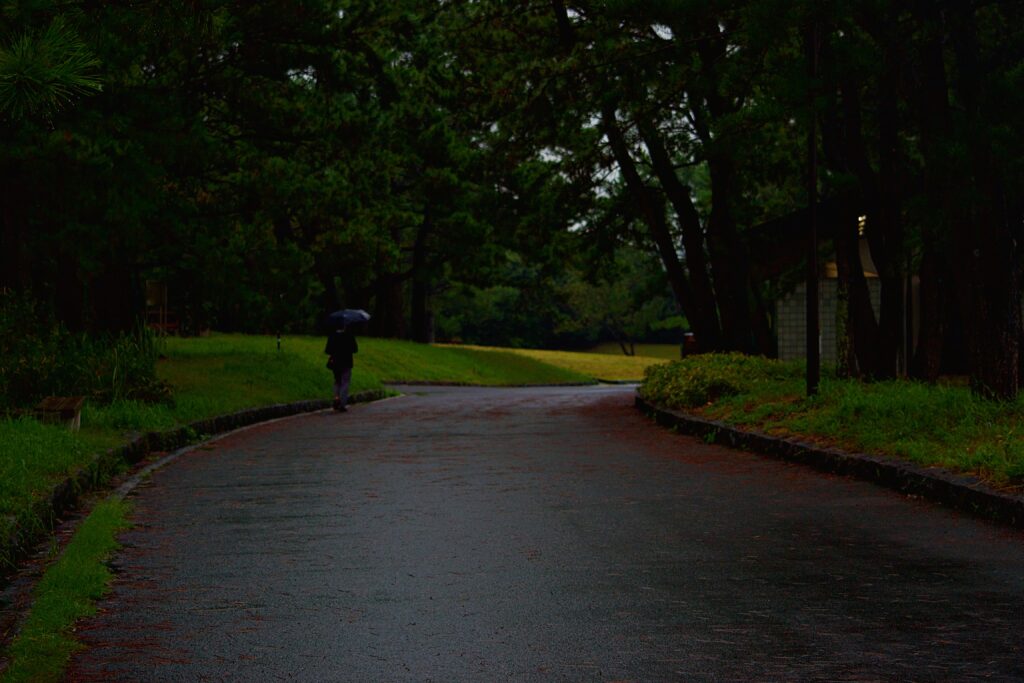
There was an element of the absurd in the whole spectacle that was being performed here. The cats looked well fed but there were people getting up early in the morning to feed the already well fed cats.
Last year I used to see a couple, girl and boy standing in the park during the early morning. They too stood in the dark, facing each other, on most days. They stood on rainy mornings holding umbrellas, in winter blowing into their hands, talking and laughing loudly most of the time, the odd silent interval was when they kissed.
I would walk by them without even noticing them after sometime. They became the objects in the park, the trees, the benches, the slides for children, the only difference being these objects were living and breathing, but despite their loud activity they were invisible after some time.
What drove these young people to the park in that early morning hour, come rain or wind was probably love. When they stopped appearing I assumed love ended , one or both probably moved away.
Absurdism says people perform acts, write plays, songs because the alternative is to go mad. These acts define and give meaning to sometimes meaningless lives.
But performing an act with no visible affection for the act and in a manner which denied the existence of the act seemed mystifying.
‘An absurd worldview is that one which abandons values
Albert Camus ‘The myth of Sisyphus’
one that rests content with description and does not seek explanation or justification’.
The madness seemed to be in the act, not the consequence of denial. The secrecy, the apparent denial and the closed cocoon that the cat feeders seemed to operate out of, added mystery and drew attention to them.
The early morning feeders stood out because they were averse to attention. The lack of eye contact, the refusal to acknowledge another presence and veiled act of feeding under the cover of darkness was what shined the spotlight on them.
The feeders by their furtive acts drew more attention to themselves, their apparent act of stillness, the silence spoke louder than the effort they put into trying to mute it.
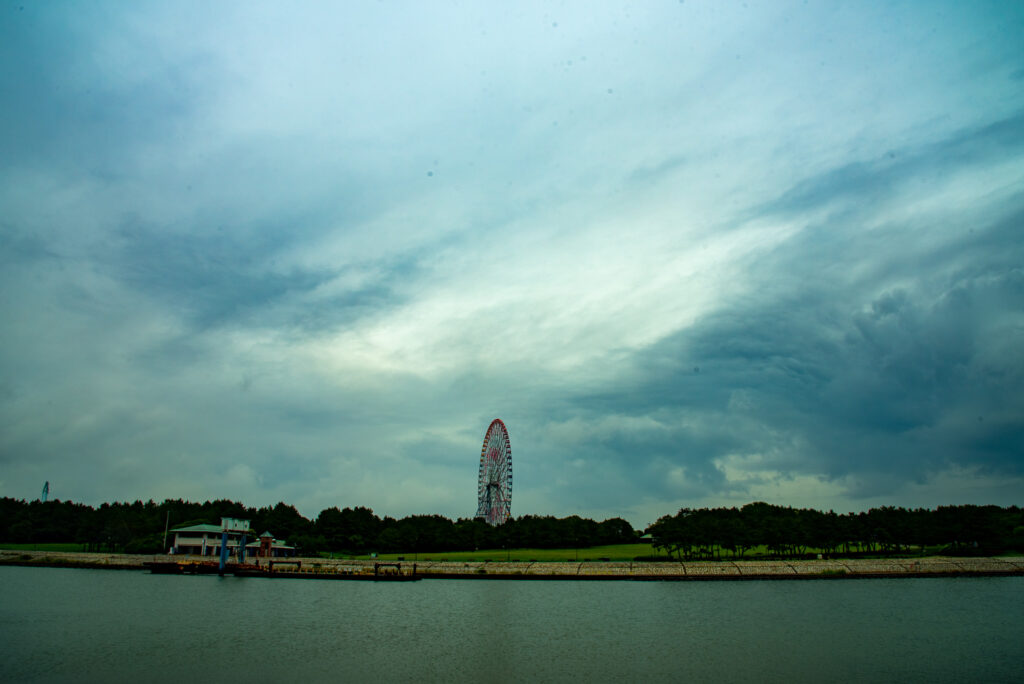
Charity or other unselfish acts come out of guilt. Man is inherently selfish and only unbearable guilt can drive him out of his comfort of selfishness into acts which benefit others and not him.
Charity done for recognition is not charity, it is an extension of selfishness and the act of proving that he cares not just for himself but others is by itself an act of caring for himself.
What drives these two characters into a futile act, of feeding cats which will be fed by others laters in the day, remains a mystery. The satisfaction from this futility is better left unknown. The sins they seem to want to wash or the virtue they want to gain are best left hidden.
Somedays I am tempted to greet them as I walk past the man riding his bicycle or the woman sometimes walking ahead of him and at other times standing behind, trying hard to hide all sense of connection between them.
But then I feel that the very acknowledgment might violate the sanctity of whatever charade that is being played out day after day. So I head past them, eyes averted, their presence unreported and leave them to it.
The meaninglessness of it all was perhaps where the meaning was. It was a theatre of repetition where the act went on and on, the endlessness was the meaning behind it all. The actors pretended not to notice the audience and the audience refused to acknowledge they were in the theatre.
We all need our reason to exist and by getting ignored probably provide them theirs.

